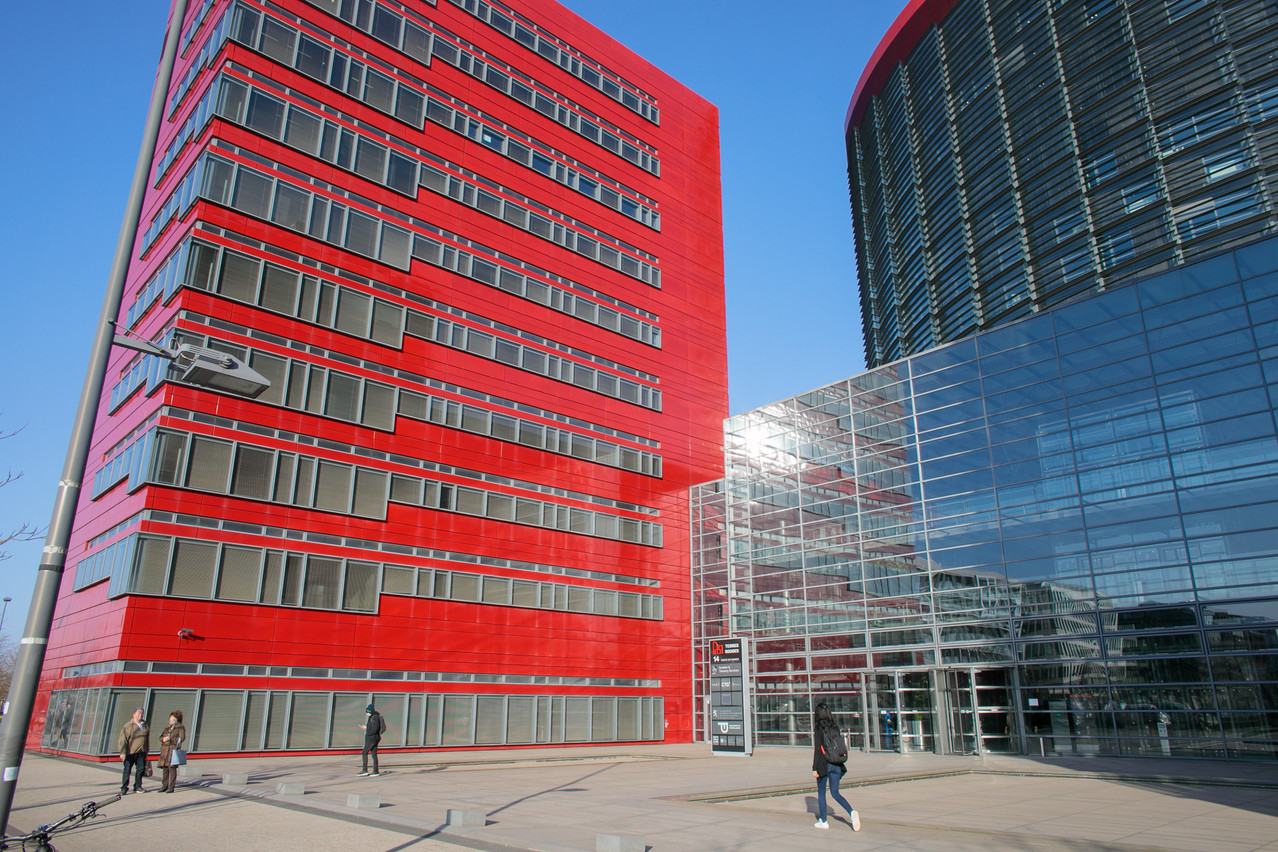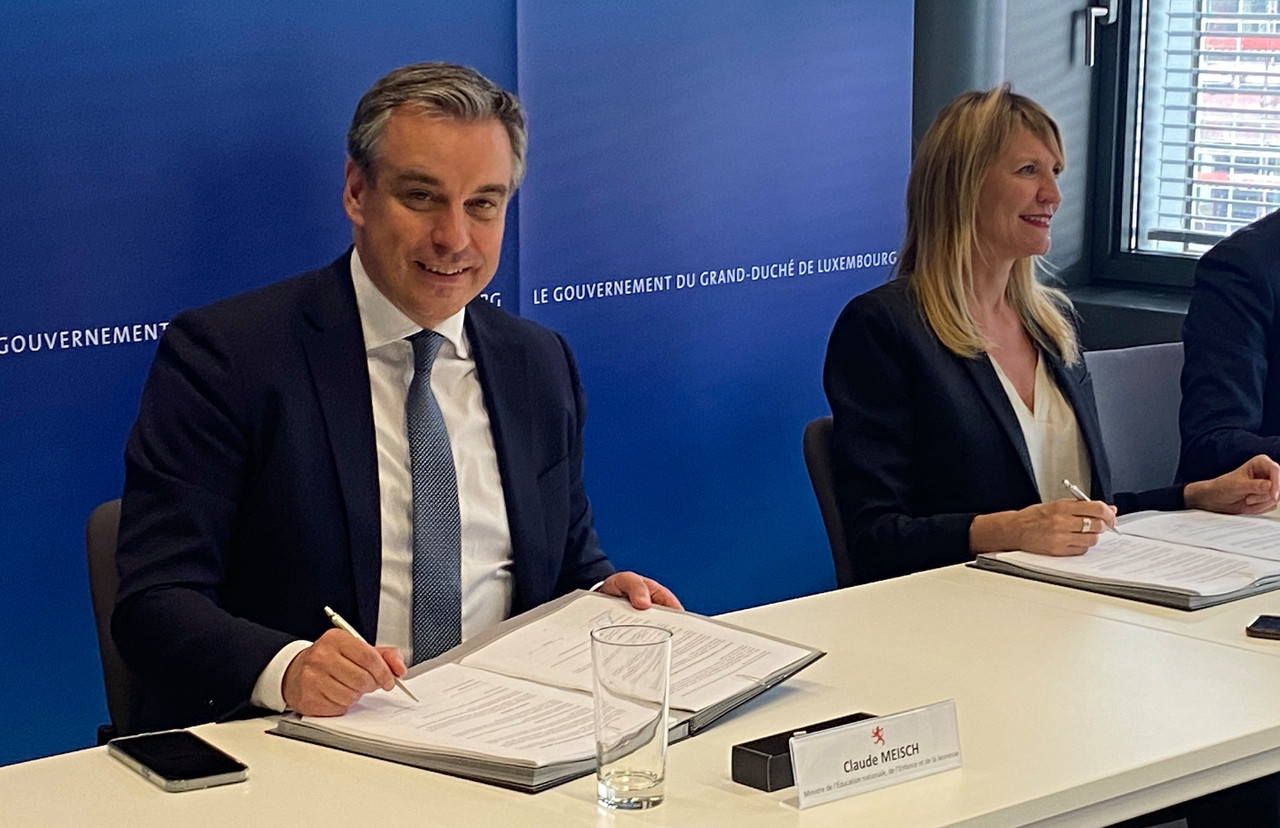Four initial partners have agreed to provide free training open to all. This includes école 42 which has planned to take charge of 150 training posts out of the 400 that the DLH will be able to accommodate. The DLH, with the exception of école 42 will give students access to a set of modular spaces, laboratories dedicated to networks and cybersecurity, a design and prototyping space with 3D printers and laser cutters.
"The future is digital," the minister said during the press conference. "Therefore, digital skills must be developed from a very early age--in a playful way with coding in primary school, with the digital science course in secondary school. It is also important to develop and deepen digital skills in working life. With the DLH, Luxembourg has a modern centre for continuing education that promotes creativity, autonomy and working together.”

The Digital Learning Hub has taken up residence in the Les Terres Rouges building in Belval. (Photo: Matic Zorman/Masion Moderne/Archives)
Given the immense needs of companies as the economy becomes more digital, as the minister explains that no project is a cure-all but is part of a broader training offer. Providing this workforce as much as possible is the guarantee of Luxembourg's future competitiveness. "In five years, we have brought 40% more young people into the IT professions," Meisch said. "Despite all this, we still have 3,500 job offers that are not being filled at Adem."
Tests before a 26-day pool
The DLH is aimed at any adult, resident or not, who wishes to improve his or her skills, either privately or as part of a business project. It also targets young people who have just completed their secondary or university studies, those who have dropped out of the education system or job seekers. The courses will take place from 31 May and there will be two open days on 2 and 3 June.
After almost three years of discussions, the famous programming school, école 42, has agreed to set up shop in Luxembourg. It is already present in 25 countries and on 42 campuses. True to its philosophy, the school, which does not require any pre-requisites in terms of skills or diplomas, has given access to its online tests. Selected students will join a first 26-day "pool", at the end of which, a third to half will remain in this three-year programme, explained Sophie Viger, the school’s director who travelled especially from Paris for the signing ceremony. The programme is sanctioned by a certificate (European level 6 or 7).
The first pool will start on 5 September, the second on 3 October, the third on 31 October and the fourth on 5 December.
In addition to these courses, which can be taken 24 hours a day, seven days a week, and which are based on peer learning, the Lux Blockchain Lab, represented by Fabrice Croiseaux, will offer workshops on blockchain for four audiences (developers, a wider public, policy makers and lawyers). The organisation launched by Infrachain, SnT, Lhoft and Letzblock has designed training courses lasting from five to 14 weeks.
Catalogue of e-learning courses
According to its CEO, , Securitymadein.lu will open its second Room42 for cyber threat training for companies and public authorities on this hub and will proceed with a catalogue of training courses.
Finally, the D-School of the Hasso-Plattner-Institut in Potsdam will offer design thinking courses to enable heterogeneous groups to find innovative solutions, knowing that graduates will have to learn to learn continuously in a changing world. Among the courses it will offer are design thinking, UX, but also virtual and augmented reality and the metaverse. "I thought I would see three or four white rooms," said its representative, Christoph Meinel. "I didn't expect such an installation!"
This story was first published in French on . It has been translated and edited for Delano.
